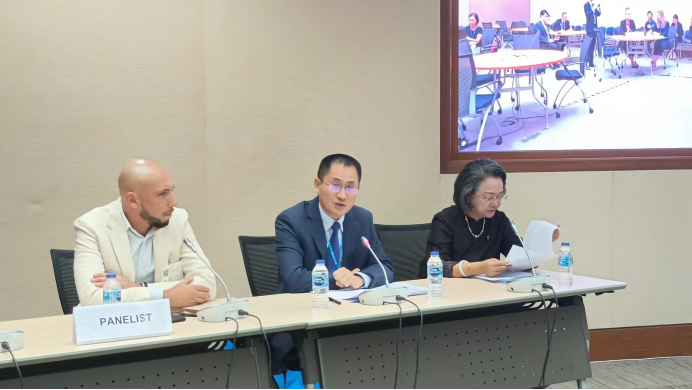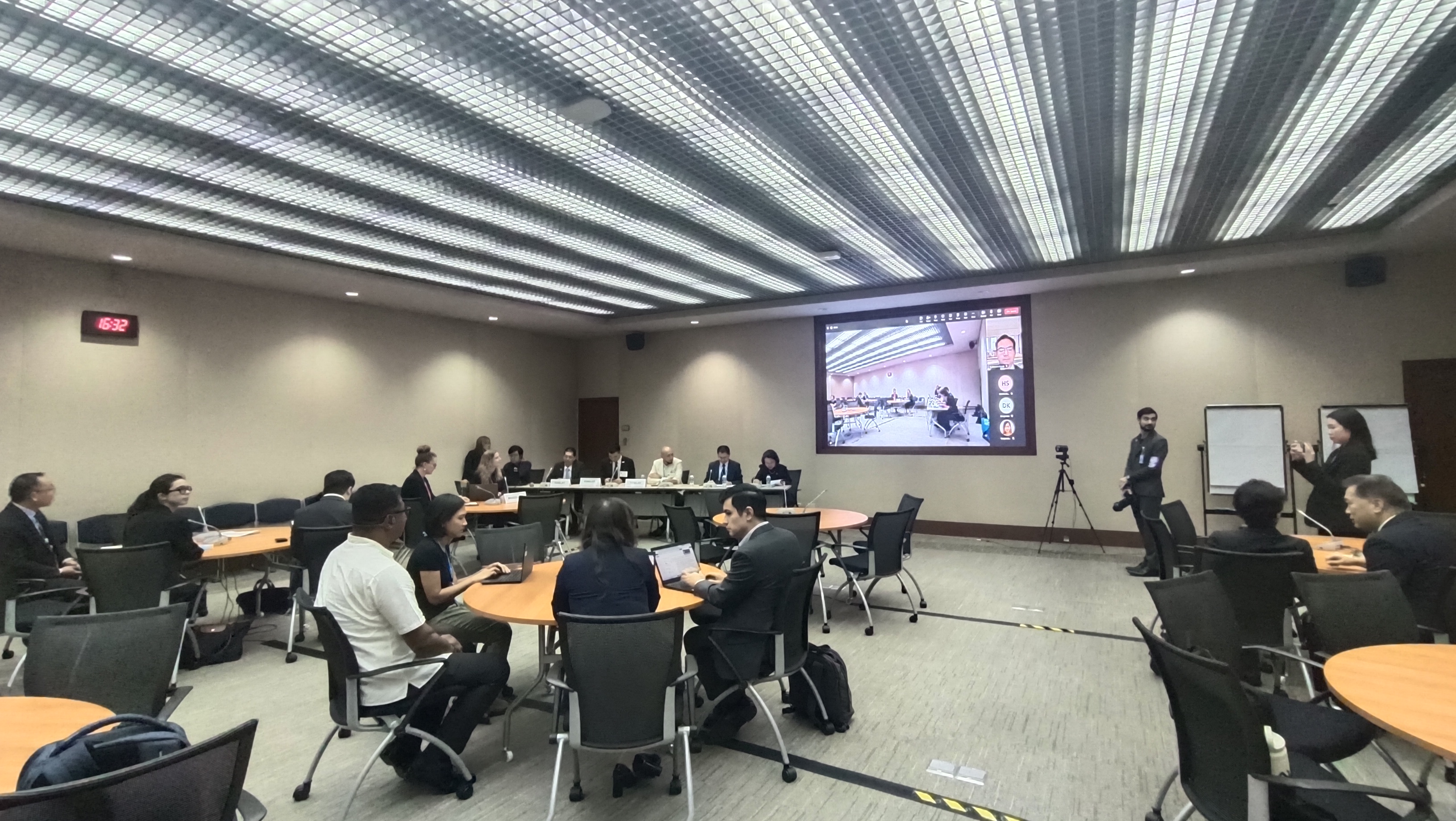
On February 21, the Permanent Mission of China to the UNESCAP co-hosteda side event on SDG13 and electric mobility together with the Ministry of Transport and Highways of Sri Lanka, ESCAP Transport Division, Energy Division and the UNEP. The meeting focused on experience sharing on the transition to electric mobility in the Asia-Pacific region, with a view to address climate change. Permanent Representative Mr. Ke Yousheng attended the event and delivered a speech.
Mr. Ke said that Climate change is a common challenge facing the world. China has always attached great importance to addressing climate change and actively implemented President Xi Jinping's Thought on Ecological Civilization. China has steadfastly pursued high-quality development that is green, low-carbon and gives priority to ecology. China has made major strategic decisions to achieve carbon peak before 2030 and carbon neutrality before 2060, and incorporated the decisions into the overall plan of its ecological civilization building and economic and social development. In 2022, China issued the the National Climate Change Adaptation Strategy 2035, which set plans and deployments for adaptation to climate change until 2035.

China has actively implemented its emission reduction commitments. We endeavored to build a sustainable transportation system, and implemented plans for carbon peaking and neutrality in the transportation sector. By the end of 2023, China's new energy vehicle stock reached 20.41 million. The number of new energy buses, taxis, and delivery vehicles in commercial operation reached 1.64 million. A total of 8.596 million charging facilities have been built in China, ranking first in the world and gradually forming a positive cycle of mutual promotion between new energy vehicles and charging infrastructure. In addition, by the end of 2022, China's railway electrification rate had reached 73.8%.
China has actively strengthened international cooperation in the field of sustainable transportation. Chinese new energy vehicle companies built factories in partner countries. They brought investment, high technology, and successful experiences, which drove local economic growth and employment and helped these countries and their regions promote electric mobility. The Chinese government remained committed to promoting green development under the Belt and Road Initiative. We established Belt and Road energy partnerships with 32 partner countries, and initiated the BRI International Green Development Coalition. We implemented global development initiative and promoted the establishment of a Global Clean Energy Cooperation Partnership. China hosted the Global Sustainable Transport Forum (2023), which adopted the "Beijing Initiative" and launched the Global Sustainable Transport Innovation Alliance. Through the China-ESCAP Cooperation Programme, China supported the Secretariat’s projects on green transportation infrastructure and electric transformation of public transport.
Mr. Ke stressed that the transportation sector is an area of key impact to climate response, and promoting electric mobility an important approach.
We must remain committed to a green and low-carbon path to development that prioritizes ecological conservation. This entails accelerating the forming of green and low-carbon transportation methods, enhancing the construction of green infrastructure and promoting the adoption of new energy, intelligent, digital, and lightweight transportation equipment.
We must encourage innovative regulatory models. Governments of all countries should adopt a principle of both cautiousness and inclusiveness towards new technologies, products and business models, while the industry should continue to increase investment in research and development to promote the upgrading of new energy vehicle technology.
We must adhere to common development and strengthen global cooperation in the new energy vehicle industry. Active Efforts should be made to support a new round of technological transformation, and build a new global cooperation pattern of "openness, inclusiveness, innovation, and mutual benefit", while resolutely opposing protectionism.
Mr. Ke pointed out that the global sustainable development agenda is facing multiple challenges. Recently, China’s Central Conference on Work Relating to Foreign Affairs successfully concluded. The conference further clarified that promoting the construction of a community with a shared future for mankind should be the main theme of China's diplomacy. It emphasized the need to further integrate China's development with the world's development and align the interests of the Chinese people with the common interests of peoples around the world. It further stressed the importance of promoting cooperation between countries to jointly address challenges, so as to build a world of lasting peace, universal security and common prosperity, a world that is open, inclusive, clean and beautiful.
China will continue to strengthen experience exchange and cooperation with UNESCAP and its members. Through the Belt and Road Initiative and Global Development Initiative, China will promote the green transformation of regional transportation and accelerate the implementation of the 2030 Agenda for Sustainable Development.
